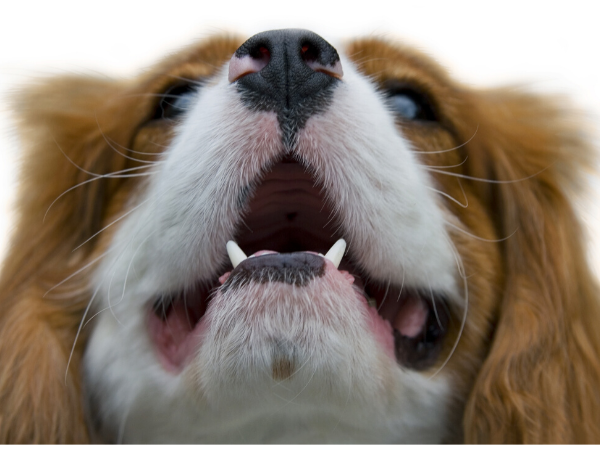A simple ranking by diet type from best to worst in terms of your pet’s dental health would look like this:
-
Raw diets
-
Canned Food
-
Dry Food
But wait....doesn’t crunchy kibble clean dog’s teeth? And doesn’t canned food rot dog’s teeth? Nope – and here’s why.
Dog’s teeth and mouths are naturally designed for ripping and tearing raw meat. When your dog chews his food, microscopic food particles can stay behind in his mouth. Raw diets are full of natural enzymes which do not stick to the teeth and generally protect teeth and gums.
How is dry food different? Every kibble uses binding agents like peas, potatoes or oat to keep its shape. These ingredients can be carbohydrate heavy, and then turn to sugar as they break down in the dog’s mouth. Unlike raw diets, these tiny sugar particles can stick to dog’s teeth and then cause damage to your pet’s oral health.
RAW DIETS
The absolute best for dental health (and many, many other things, but that is for a different post). Raw foods contain little to no carbohydrates. Aside from meat, bone or organ, the remaining ingredients are typically fruit, veggies, vitamins and minerals which pose little risk to teeth. In addition, live enzymes found in raw diets actively fight bad bacteria that forms in the mouth.
CANNED FOOD DIETS
Canned foods are naturally lower in carbohydrates and therefore better than dry food when it comes to oral health.
DRY FOOD
If raw or canned diets are not practical for you or your dog, consider these oral health points when selecting a dry food diet:
•Lower carbohydrates. Choose a diet higher in meat – high quality kibble will be 70% or more animal meat protein. Or look for binding agents which are lower on the glycemic index such as quinoa, legumes or barley. Avoid foods using corn, wheat or soy –those are lower quality diets for both dental and overall health.
•Boost your bowl! A little raw is better than none to support overall pet health. Infusing those good, live enzymes into your pet’s diet by supplementing with frozen raw or freeze-dried formulas at least a couple meals a week will make a difference.
Not ready to change your pet’s diet, but still want to make a positive impact on his dental health? This part is for you!
1. RAW CHEWS
Raw chews come in many forms such as marrow bones, duck necks,bully sticks or chicken feet. No matter which you choose, your pet will scrub their teeth with a treat packed with enzymatic, raw goodness that fights bad bacteria. Plus, the gnawing scrapes plaque off of your dog’s teeth.
2. NATURAL DENTAL PRODUCTS
Plenty of products help in the fight against tooth decay, including:
•ProDen Plaque Off. Made with 100% powdered North Atlantic seaweed, Plaque Off gets sprinkled right onto your pet’s food. After being digested, the natural plaque-fighting enzymes return to the pet’s mouth through saliva to break down bacterial biofilm on the teeth.
•Tropiclean Oral Care Gel. Applied directly to your dog’s teeth through a simple squeeze bottle, this gel infuses natural ingredients which remove and defend against plaque and tartar buildup.
3. BRUSHING
Admittedly not the most convenient, as your dog may not want a toothbrush (or your finger) in their mouth. If you do attempt to brush their teeth, make sure to use a toothpaste made specifically for dogs, as some human toothpaste contains ingredients which are toxic to our pets.
In conclusion, the best place to start managing your pet’s oral health is in their food bowl. But if not, there are other ways to benefit their long-term dental care as well.
Still have questions? Mutts & Co employees are always here to help. Stop in to any of our locations for suggestions that are tailored to your specific pet’s need•s

